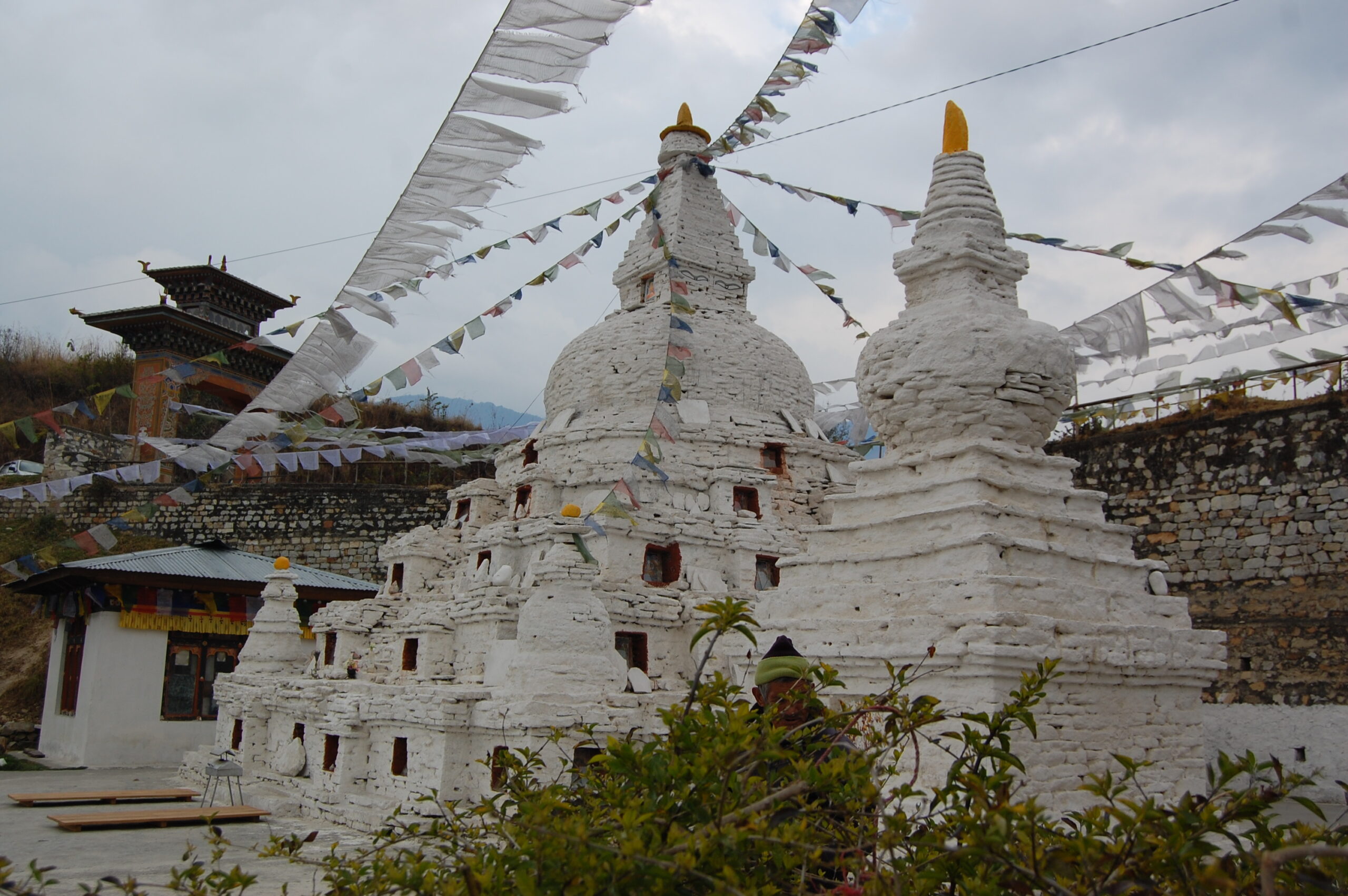It is difficult to know exactly what the Bhutanese think of death as there is more than one religion practiced in Bhutan.
From the Buddhist point of view, which is similar if not the same as Tibetan Buddhism, people fear death. Because of this “fear,” Buddhists in Bhutan prepare for death.
There are many ways Buddhists in Bhutan prepare for death.
People acquaint themselves with death through mask dances at Tshechu, a religious festival. These plays depict death and the after-life.
People also familiarize themselves with death through an intense meditational practice called Nge Ney Sung Ne.
Nge Ney Sung Ne involves a four-day intense meditation of chanting the prayer Om Mani Peme Hung, fasting, and limited interaction with others. Groups of people gather at a temple or a monastery, where a venerable monk or nun leads the meditation. Each day, participants wake up hours before the break of dawn, chant Om Mani Peme Hung, with only tea or water to drink, and right before noon, eat their only meal of the day, to resume praying again.
On the third day, participants do not eat, drink water, or talk. Serious practitioners continue their meditational practice by doing another set (8 days) of meditation.
Buddhists believe that by doing this, one can better acquaint oneself with death, which is merely a death of the physical body but not of the mind. After death, the mind wanders in a state of hunger and great fear. This is known as Bardo, the intermediate state where it struggles with reality.


